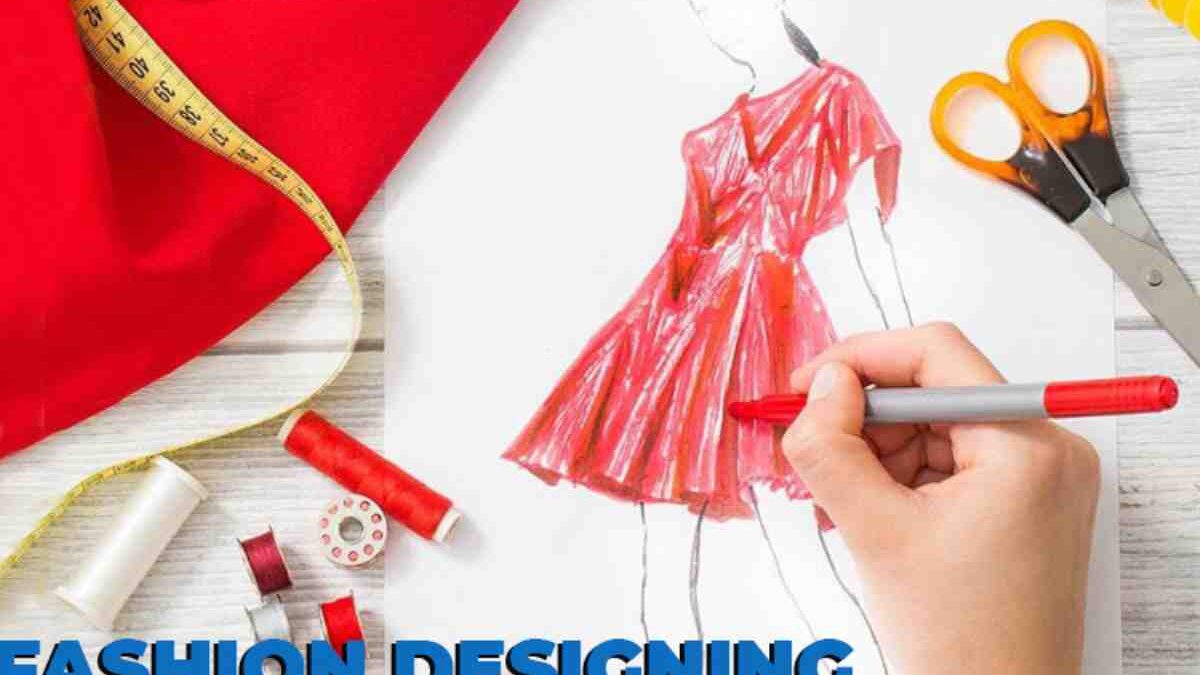How to Become a Fashion Designer After 12th – A fashion designer is a creative person who makes clothes, accessories, and other fashion items. They design outfits that are stylish, unique, and suitable for current fashion trends. Some designers work for big fashion companies, while others start their own fashion brands.
Table of Contents
Introduction to the Fashion Designing World
Fashion designing is a mix of art, creativity, technical skills, and market knowledge. Designers begin with ideas and inspiration, then create drawings or digital designs. They choose fabrics, make patterns, and work with tailors to turn their sketches into real clothes.
Fashion designers can create many types of clothing, such as:
-
Women’s wear
-
Men’s wear
-
Kids’ wear
-
Accessories like bags, shoes, or jewelry
-
Haute couture (luxury, custom-made fashion)
Designers usually get ideas by studying fashion history, exploring different cultures, or observing trends in movies, music, and everyday life. They then sketch their ideas or use computer software like CAD (Computer-Aided Design).
They also work with pattern makers, stylists, photographers, and models to display their clothes at fashion shows or in photoshoots.
To succeed, a fashion designer must be creative, understand colors and fabrics, and stay updated with the latest trends.
Finding Your Style – What Inspires You?
Before becoming a designer, it’s important to discover what inspires you. You might love:
-
Traditional clothing
-
Street-style outfits
-
Elegant dresses
-
Modern, trendy fashion
Your inspiration will shape your unique style as a designer.
Building Your Fashion Designer Skills
If you want to become a fashion designer after 12th grade, follow these steps:
1. Research the Career
Learn about what fashion designers do and see if the field matches your interests. Watch videos, read blogs, and follow fashion influencers.
2. Join a Fashion Course
After 12th, you can join a degree or diploma course such as:
-
Bachelor of Design (B.Des.)
-
Diploma in Fashion Design
-
Bachelor of Fashion Technology
These courses teach drawing, stitching, garment construction, textiles, and digital design.
3. Improve Your Technical Skills
Practice:
-
Drawing and sketching
-
Using colors
-
Understanding fabrics
-
Basic stitching
-
Designing on computers (Illustrator, Photoshop)
4. Gain Practical Experience
Try to get internships with fashion designers or boutiques. This helps you learn real-world skills.
5. Create a Portfolio
A portfolio is a collection of your best design work. Include:
-
Sketches
-
Digital designs
-
Photos of outfits you created
This is important for job applications or further studies.
6. Stay Updated
Follow fashion magazines, shows, and designers to keep up with new trends.
7. Network
Meet people in the industry by attending workshops, exhibitions, or fashion events.
8. Start Your Career
Once you gain experience, you can:
-
Work in a fashion company
-
Join a design studio
-
Start your own fashion brand
Creating Your Own Designs – Tips for Starting Your Fashion Line
If you want to start your own fashion brand, here are some simple steps:
1. Know Your Brand
Decide what makes your designs special and who your customers will be.
2. Study Fashion Trends
Understand what people like to wear and what’s popular.
3. Create a Signature Style
Your style should be recognizable—maybe through colors, patterns, or unique cuts.
4. Sketch Your Ideas
Draw your designs on paper. Try different shapes, styles, and patterns.
5. Make Technical Drawings
These are detailed drawings with measurements that tailors use to stitch your clothes.
6. Build Your Portfolio
Show your sketches, final outfits, and design ideas in a neat folder or digital file.
7. Find Fabric Suppliers and Tailors
Choose reliable tailors and good-quality materials to bring your designs to life.
8. Start Small
Create a small collection first—maybe 5–10 outfits. Focus on quality.
9. Test Your Designs
Make samples, try them on, get feedback, and improve them.
10. Market Your Brand
Use:
-
Instagram
-
Facebook
-
Fashion blogs
-
Influencers
You can even host a small fashion show or online launch.
Conclusion
Becoming a fashion designer is exciting but needs hard work, creativity, and passion. By learning the right skills, staying inspired, and working consistently, you can build a bright future in the fashion industry.
If you want, I can also make this:
-
Shorter
-
More child-friendly
-
More SEO-friendly
-
More professional
-
A ready-made blog article

